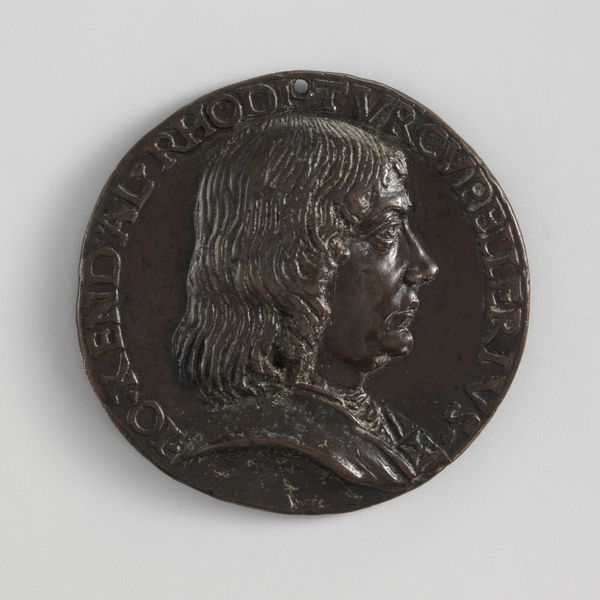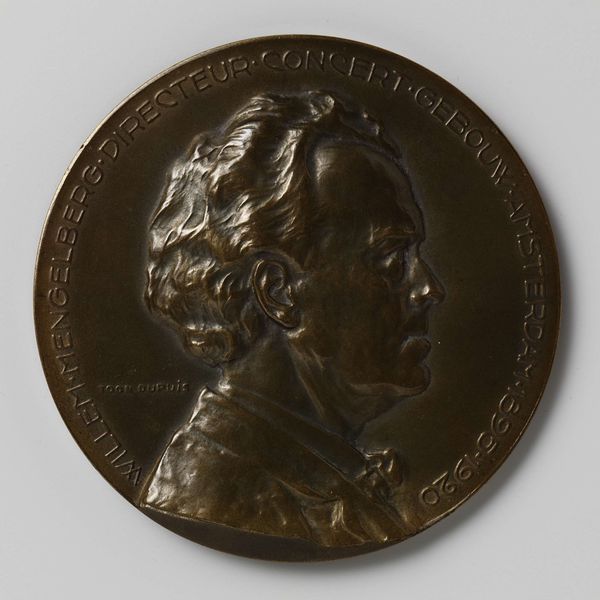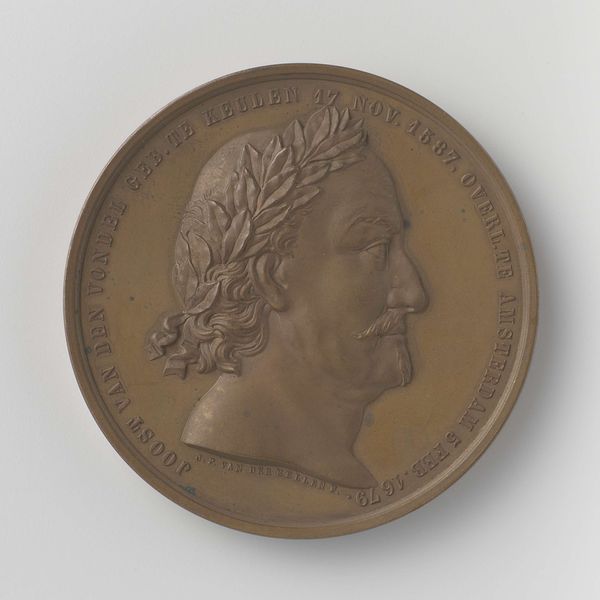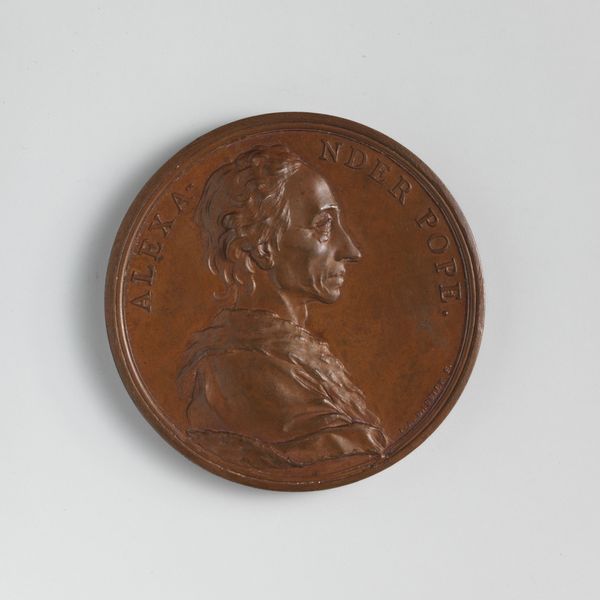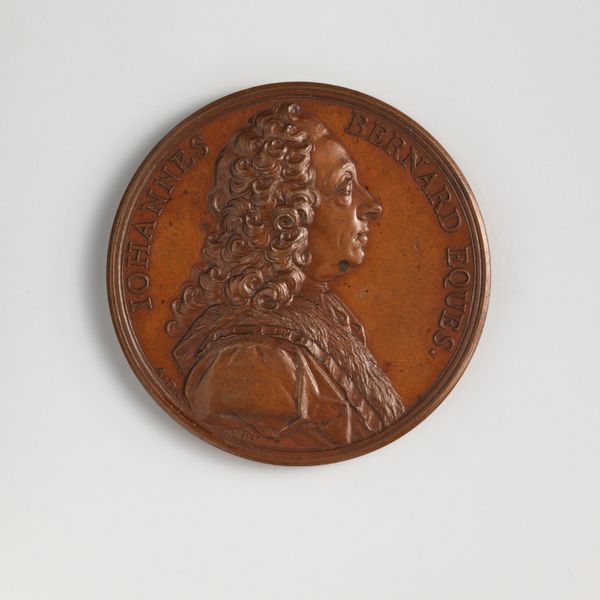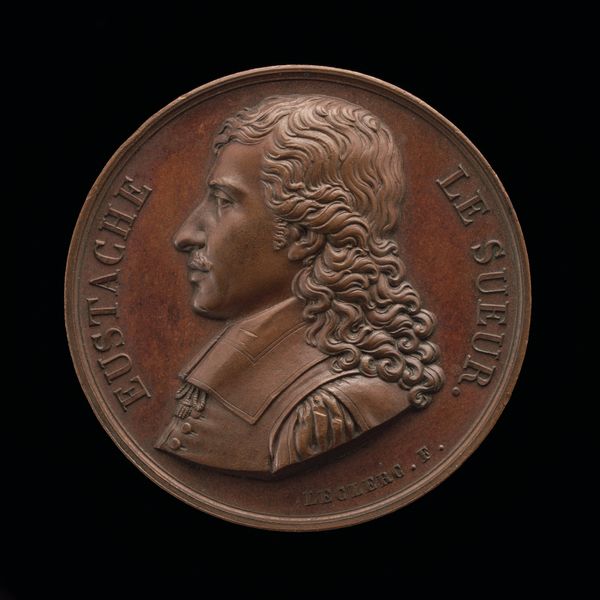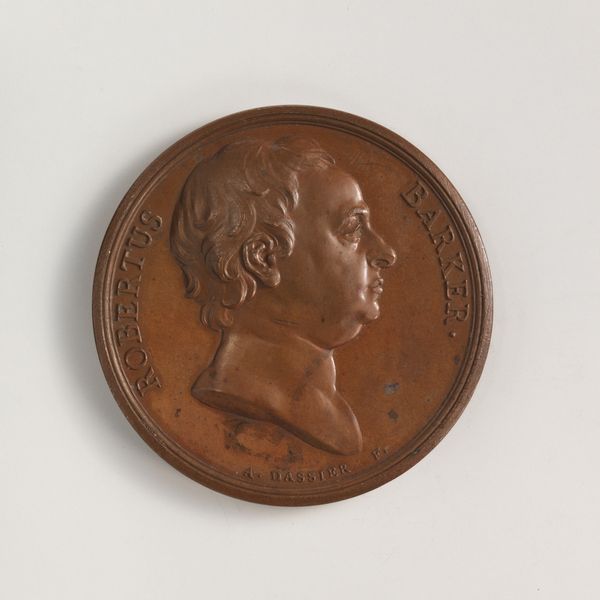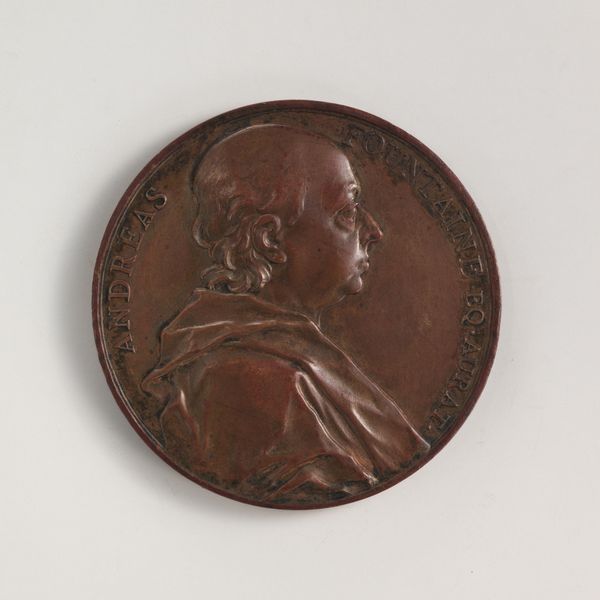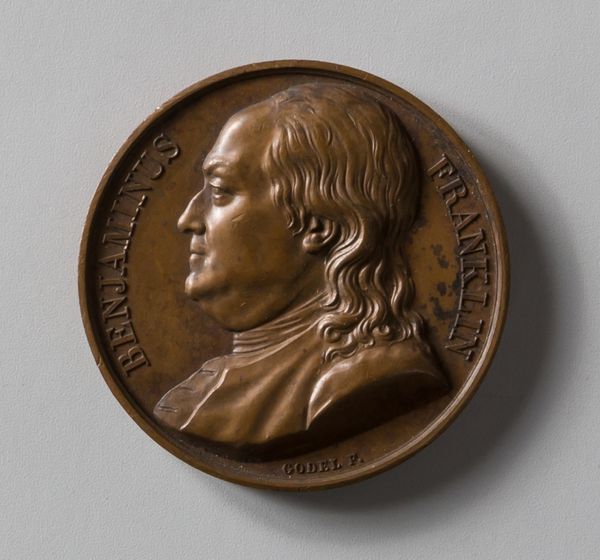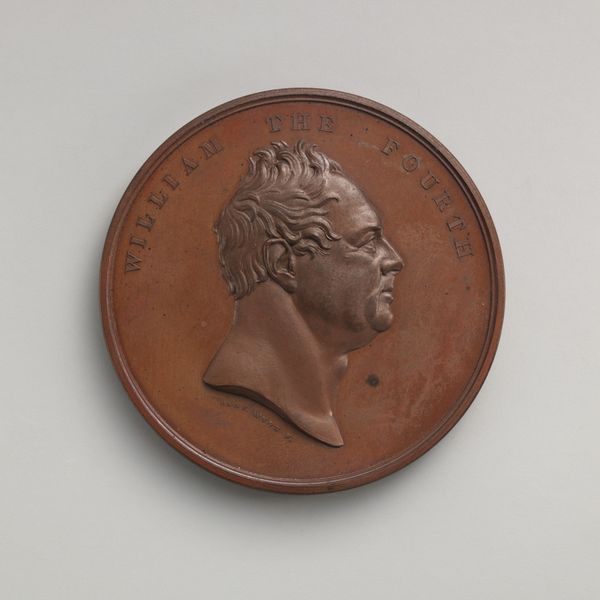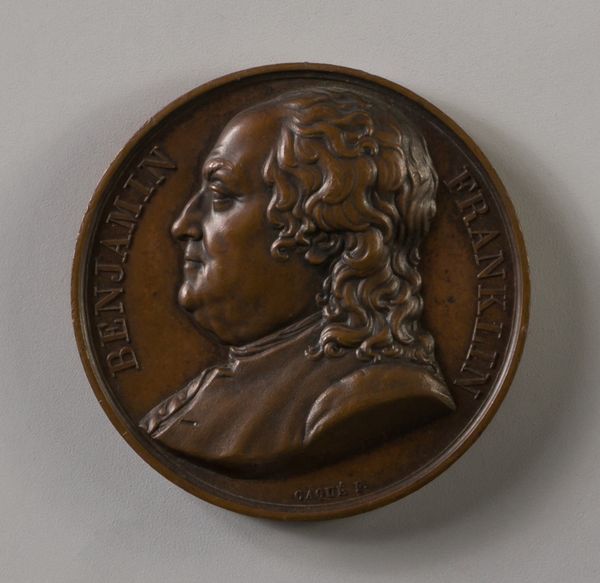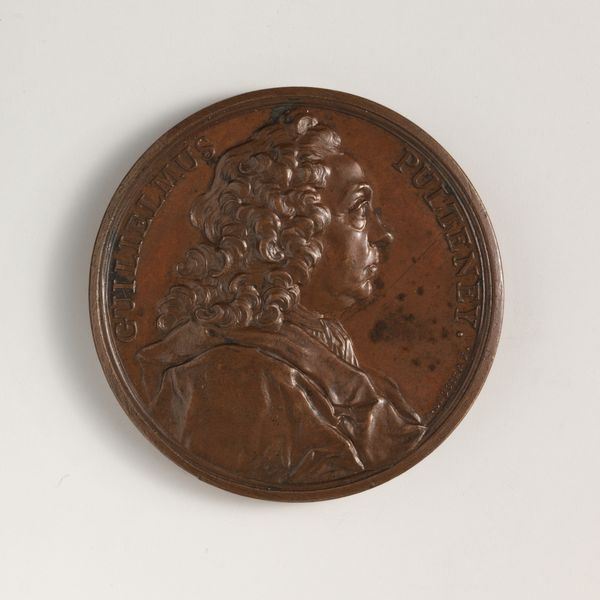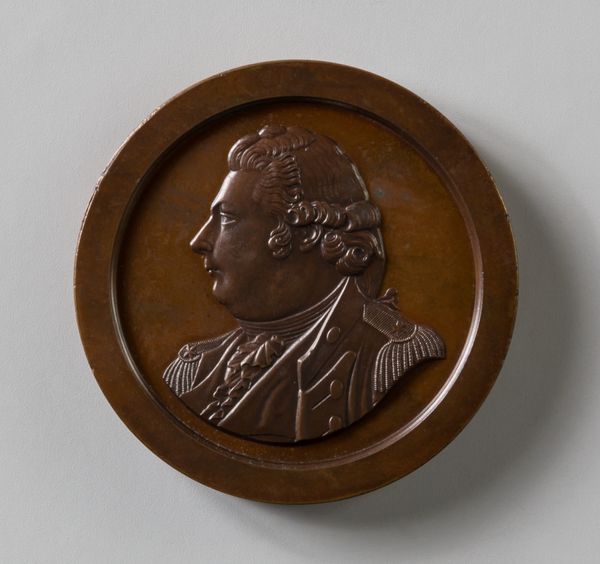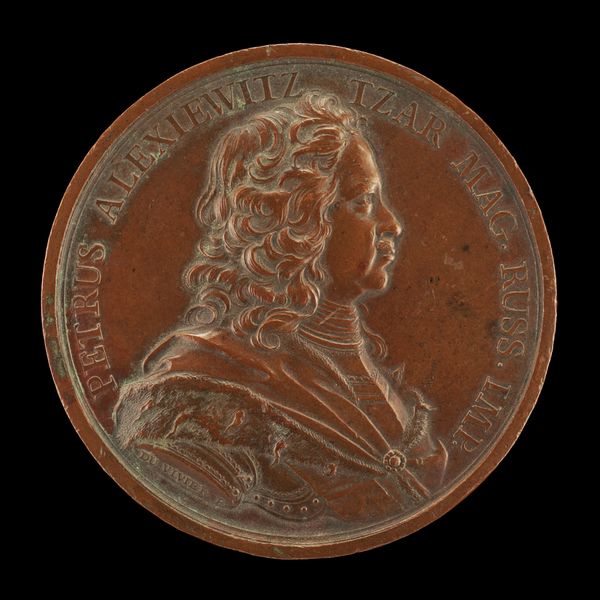
#
toned paper
#
sculpture
#
charcoal drawing
#
sculptural image
#
unrealistic statue
#
stoneware
#
underpainting
#
watercolour illustration
#
watercolor
#
statue
Dimensions: diameter 5.4 cm, weight 89.27 gr
Copyright: Rijks Museum: Open Domain
Editor: So, this is "Erection of a statue of Hermanus Boerhave," made in 1872 by Johan Philip van der Kellen. It looks like it's a charcoal and watercolor drawing on toned paper, currently residing at the Rijksmuseum. It gives me a feeling of civic pride or maybe even a touch of… hero worship? What strikes you most about it? Curator: It's interesting that you pick up on that "hero worship," because I think this image, even in its preparatory stage, speaks volumes about the construction of historical narratives and the individuals we choose to memorialize. Boerhave was a hugely influential figure, and this medal commemorates that. But what societal forces deemed him worthy of such an honor, and perhaps more importantly, *who* was excluded from this kind of recognition? Editor: That's a good point. I guess I was looking at it from a purely aesthetic viewpoint, but now I’m wondering about what the statue itself would have represented to people at the time. Were there debates about how he should be represented? Curator: Exactly! And it raises broader questions about monuments and their roles in shaping public memory. Who gets a statue, and what message does that send about power, privilege, and societal values? Was there a counter-narrative, voices that were not in agreement or somehow diminished? This medal and, presumably the statue, can be considered an explicit visual manifestation of hegemonic power at that time. Editor: So, it’s not just about Boerhave as an individual, but about the whole system of values that placed him on a pedestal, literally? Curator: Precisely. We need to be critical about who gets remembered, how, and why. By understanding that, we are better equipped to analyse societal and historical power structures. Editor: That definitely gives me a lot to think about. Thanks, that was insightful! Curator: My pleasure! Art is never truly just 'art'; it's always embedded in a complex web of social and political realities.
Comments
No comments
Be the first to comment and join the conversation on the ultimate creative platform.
